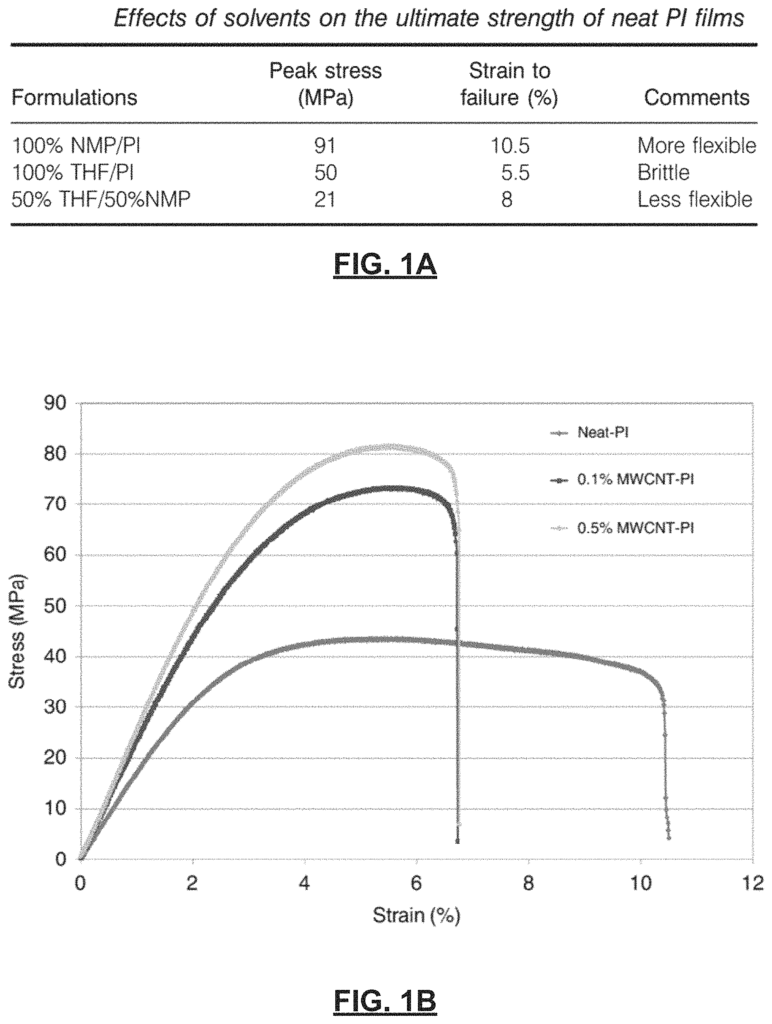Durable Polyimide Films for High-Performance Use
Introduction
This nanostructured thermoplastic polyimide film technology is engineered to meet the needs of industries that require high-performance materials with exceptional durability, flexibility, and heat resistance. Its unique composition makes it ideal for use in critical applications, including electronics, aerospace, and automotive sectors, where materials must endure harsh conditions while maintaining structural integrity. For companies looking to advance their product offerings with a cutting-edge material, this polyimide film delivers unmatched performance and adaptability.
The Challenge: Balancing Strength and Flexibility
In industries like electronics and aerospace, materials must be both incredibly strong and flexible, capable of withstanding extreme temperatures and mechanical stress. Traditional thermoplastics may offer strength or flexibility, but rarely both, and can struggle to maintain performance under high heat or demanding conditions. As products become more advanced, the materials used to create them must evolve to meet higher standards of durability, efficiency, and resilience. The challenge for many manufacturers is finding a material that offers all these qualities without sacrificing production efficiency or increasing costs.
Thermoplastic Polyimide Films: A Superior Solution
This nanostructured thermoplastic polyimide film solves these challenges by offering a material that is both strong and flexible, with the added benefit of heat resistance. These films can withstand high temperatures without degrading, making them ideal for use in electronics, aerospace, and automotive applications where heat and pressure are constant concerns. The nanostructured design enhances the film’s durability, providing greater resistance to wear and tear, while maintaining the flexibility needed for complex designs and structures. This adaptability makes the films suitable for use in high-performance packaging, insulation, and protective coatings as well.
Key Advantages Across Multiple Sectors
In the electronics industry, these films provide reliable insulation for advanced circuitry, protecting sensitive components from heat and environmental factors. Aerospace companies benefit from the films’ lightweight yet durable properties, which enhance the performance of aircraft components exposed to extreme conditions. Automotive manufacturers can use the material to create parts that maintain their strength and shape even under continuous mechanical stress. The flexibility and heat resistance also make these films ideal for packaging applications where product protection is critical.
Invest in Future-Ready Materials
Licensing this durable polyimide film technology positions your company at the forefront of advanced material science. Whether your focus is on electronics, aerospace, automotive, or high-performance packaging, this technology offers a unique solution that enhances product durability, efficiency, and adaptability. As industries push for materials that can perform under increasingly challenging conditions, these thermoplastic polyimide films deliver the strength, flexibility, and heat resistance needed to stay ahead. This is an opportunity to drive innovation and meet the future demands of advanced manufacturing with a material that offers superior performance and reliability.

- Abstract
- Claims
The invention claimed is:
Share
Title
Nanostructured thermoplastic polyimide films
Inventor(s)
Heshmat AGLAN
Assignee(s)
Tuskegee University
Patent #
10907026
Patent Date
February 2, 2021
